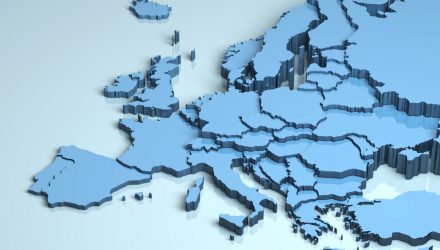The rise of environmental, social, and governance (ESG) investing brought a new way for investors to think about the capital markets. One development was ESG filters that screened for companies whose business operations didn’t include weapons, but is the Russian-Ukrainian conflict changing that?
According to the Wall Street Journal, a Swedish-based firm, Skandinaviska Enskilda Banken AB, will permit some of its funds to invest in companies that do involve weaponry and defense. This runs counter to its ESG principles established a year ago, but with the crisis in Ukraine, firms could be forced to reframe their positions.
“If you don’t have security and stability, if you can’t defend the open values of democracies, you cannot have any kind of sustainability,” said Jan Pie, secretary general of the AeroSpace and Defence Industries Association of Europe. “Unfortunately I think there is evidence of that going on in Ukraine as we speak.”
Either way, the exponential growth power of ESG remains. With its ever-increasing popularity, it gives investors a growth component with profit potential while also focusing on the issues that investors care most about.
Getting Global ESG Exposure
Getting global exposure to ESG doesn’t mean that investors need to hold multiple positions in international stocks. They can get all-encompassing global exposure via the FlexShares STOXX Global ESG Impact Index Fund (ESGG).
Per the fund’s description, ESGG seeks investment results that correspond generally to the price and yield performance (before fees and expenses) of the STOXX® Global ESG Select KPIs Index. The index is designed to reflect the performance of a selection of companies that, in aggregate, possess greater exposure to ESG characteristics relative to the STOXX® Global 1800 Index, a float-adjusted market capitalization-weighted index of companies incorporated in the U.S. or in developed international markets.
The fund uses the index as its starting point and then sifts through companies by weeding them out based on the following criteria:
- Companies that do not adhere to the UN Global Compact principles
- Companies involved in controversial weapons
- Coal miners
“The FlexShares STOXX Global ESG Impact Index Fund (ESGG) tracks a proprietary STOXX index that rates companies based on environmental, social and governance factors that influence risk and return, such as workplace safety, executive compensation, and board diversity,” an ETF Database analysis says. “The portfolio is weighted in favor of the best performers.”
For more news, information, and strategy, visit the Multi-Asset Channel.

